Less of Culture Fit and more of Culture Sum
A couple of weeks ago, I had the opportunity to participate in a Women in Localization event as a panelist with other colleagues (Ronan Kevitt, Lotus Smits, and Maria Kania), where we had the opportunity to address the topic of Diversity, Inclusion & Cultural Intelligence
This is a topic that really appeals to me. On Cultural Intelligence (CQ), I have published several articles on this blog here, here, and here. And I have also presented on this topic at different events.
Diversity and inclusion touch my heart, and I think that's one of the main reasons I like so much work in the Globalization/Localization industry.
If we think about it, the main goal we achieve when localizing a product is to be inclusive. Because if a software is in English and someone who doesn't speak it wants to use it ... they can't, and that's the opposite of creating an inclusive experience.
For whatever reason, I like the theme of diversity, inclusion and I'm glad to have a job that allows me to express myself without ties. I am also happy to have peers who are very different from me.
This diversity is positive and there are different studies that have certified that having diverse teams is worthwhile as they are more efficient. That is precisely what Cultural Intelligence promotes, a skill that we talked about at length during the event.
There was a question during the event that cultural intelligence usually comes up every time we talk about. This question addresses cultural stereotypes, and if by saying, "Spanish people are like this", "French people are like that" etc, if we are not labeling people and pigeonholing them.
Click HERE to know more about why Cultural Intelligence is not about stereotypes
I believe that what Cultural intelligence achieves is precisely the opposite; although it may seem at first that what we do when we study each culture is to look for a match between country and culture and put everyone in a box, the truth is that in practice it is the opposite. By developing our Cultural Intelligence, we learn that rather than always looking for a cultural fit, we are looking for a cultural sum ...
Cultural fit is something that we hear a lot, that we read a lot, but I don't really like the term.
I think that culture fit if it is not explained well, can lead people who are part of a company, who are part of a team... to understand that when they are hired what they are looking for is that new hires all look, think, and act alike.
Culture fit in job offers is like a plague, and it is everywhere.
For example, doing a quick search with different filters in the job portal Monster.com
I found more than 70,000 jobs for which culture fit is important.
Depending on our understanding of culture fit, this can be a major obstacle to creating an inclusive work environment.
Defining culture fit is important, and in that sense, I like the WSJ's approach to defining culture fit
Defining Cultural Fit
What it is:
-Shared enthusiasm about a company's mission or purpose
-A common approach to working, together or individually
-A mutual understanding of how to make decisions and assess risk
What it's not:
-A common educational, cultural, or career background
-A sense of comfort and familiarity with co-workers
-Shared enjoyment of such perks as ping pong and craft beer
if it were up to me, I would change the concept from Culture Fit to Culture Sum.
Sum best represents that diversity is good, that creativity shines when we have people from different profiles and backgrounds.
How can we create a culture of Culture Sum instead of Culture Fit?
While I am not an HR professional nor do I design recruiting processes, I have had the opportunity to interview many candidates during the 25 years I have been leading Globalization/Localization teams.
These are the guidelines that I have found useful in creating teams in which cultural diversity and inclusiveness play a key role
Understand and define your culture
- Which behaviors are tolerable and which are unacceptable in the company/team.
Understand and define your values
"values" help you hire people who share a common sense of purpose and guiding principles while respecting diverse viewpoints to deliver against those purposes and guiding principles
Eliminate the "culture fit" framework
Avoid posting advertisements with the terms "cultural fit" or questions during the selection process that mask a culture fit assessment is a good practice. Questions such as "Tell me about a time when understanding someone else's perspective helped you accomplish a task or resolve an issue" can be very useful in building a culturally diverse task force.
We are in an industry where our central role is to adapt the software to make it inclusive and accessible to people who are not fluent in one language (usually English), so we need more of an add culture than a culture fit.
Fortunately, organizations like Women in Localization do an extraordinary job of promoting this diversity with talks like the one I had the opportunity to participate in.
Thank you, and let's keep making this industry a wonderful community where we all have a place, and where more than looking for Culture Fit ... what we do is Culture Sum ... because together we are better…
Have a lovely week!
@yolocalizo
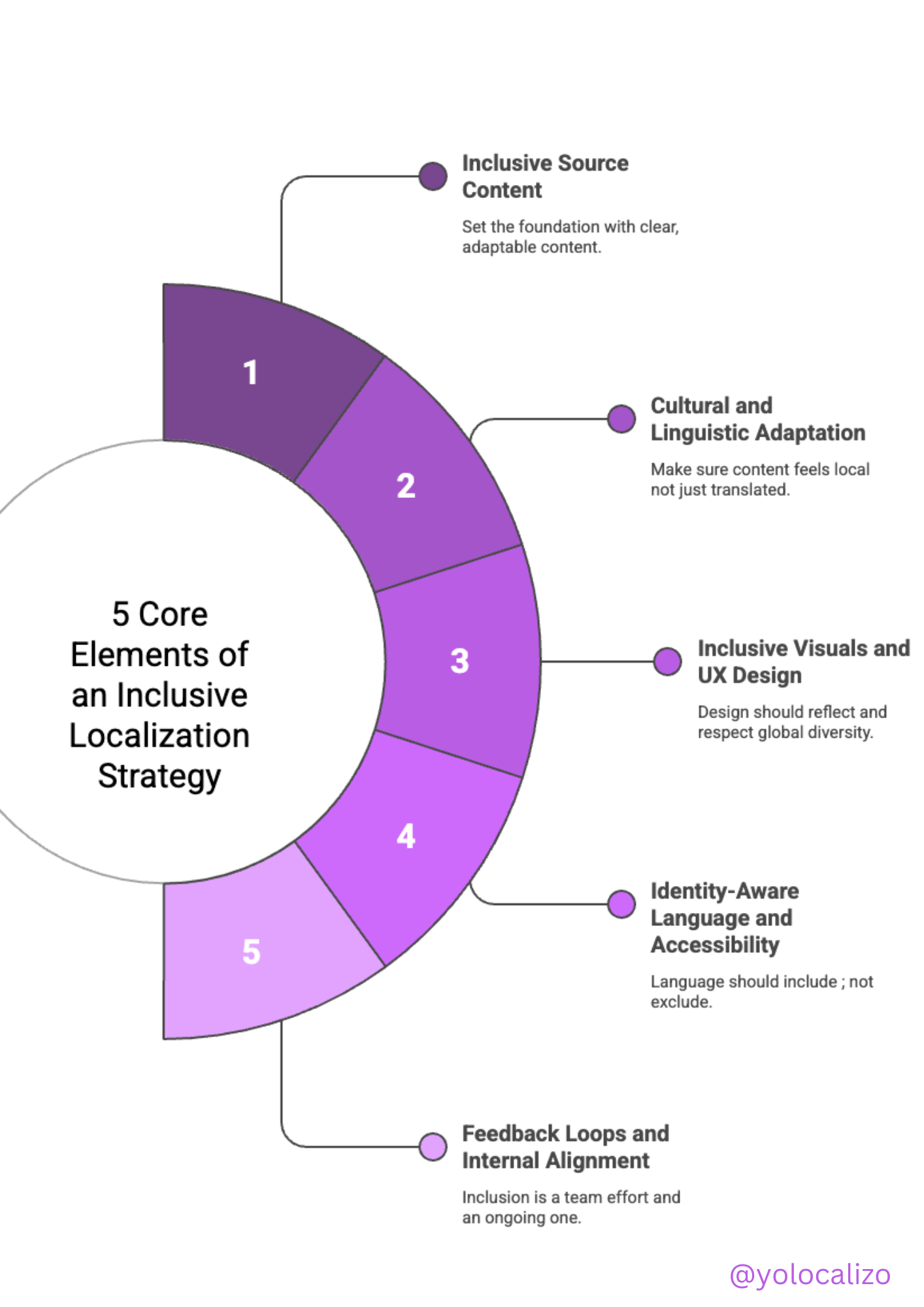

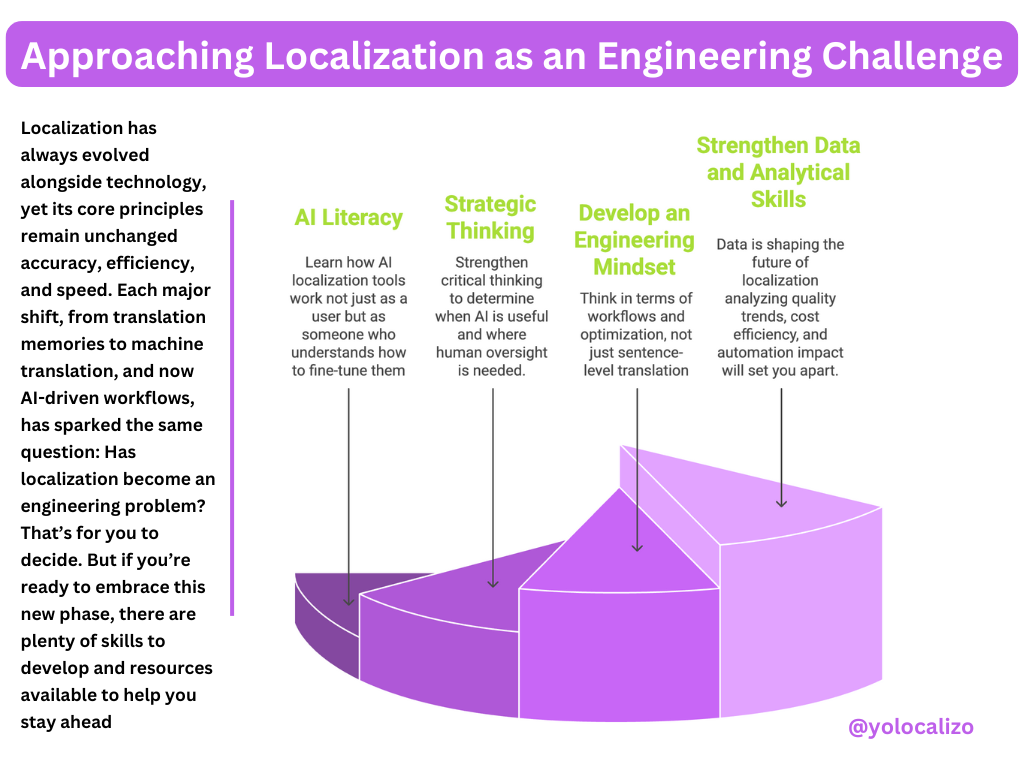
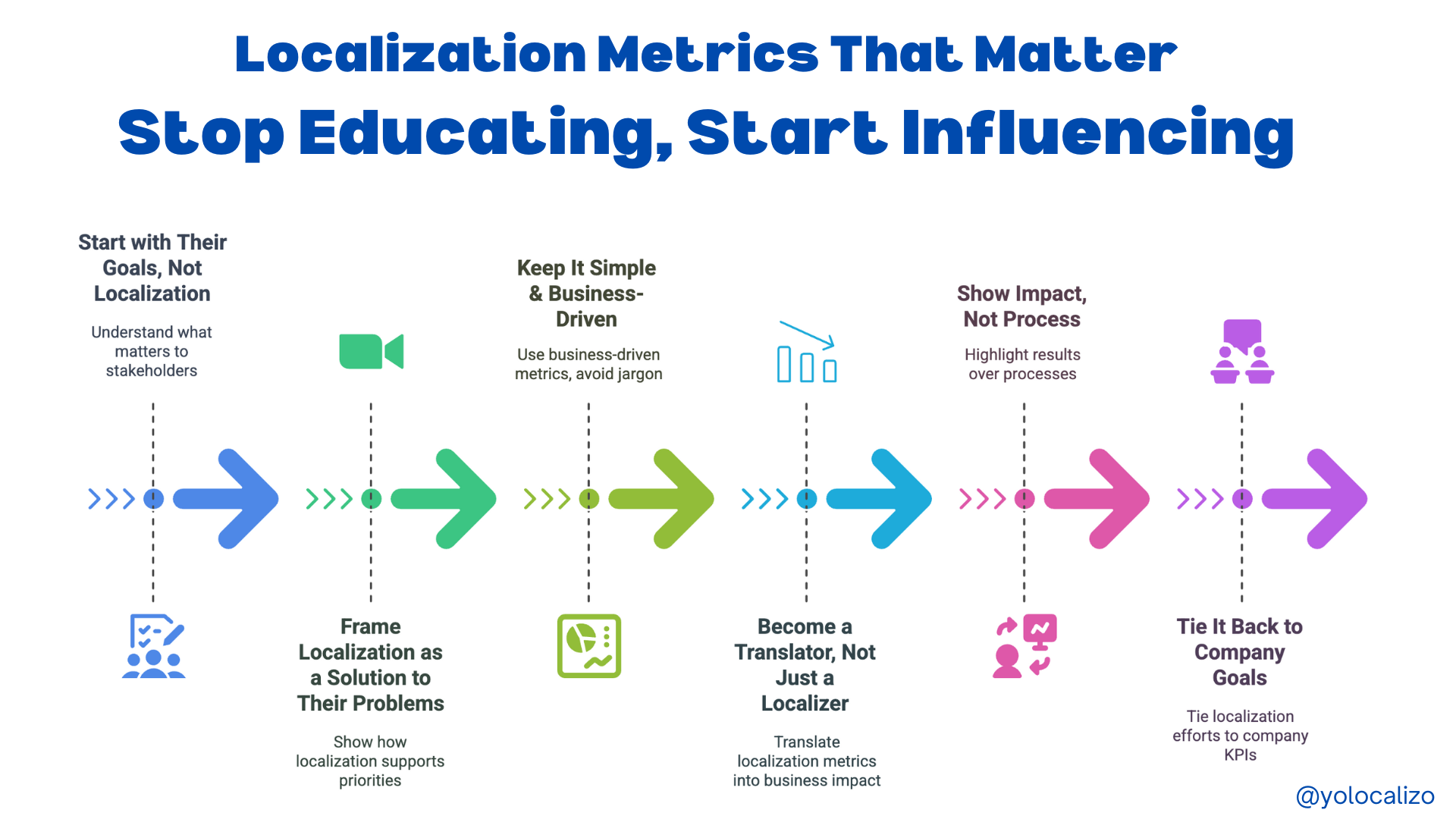


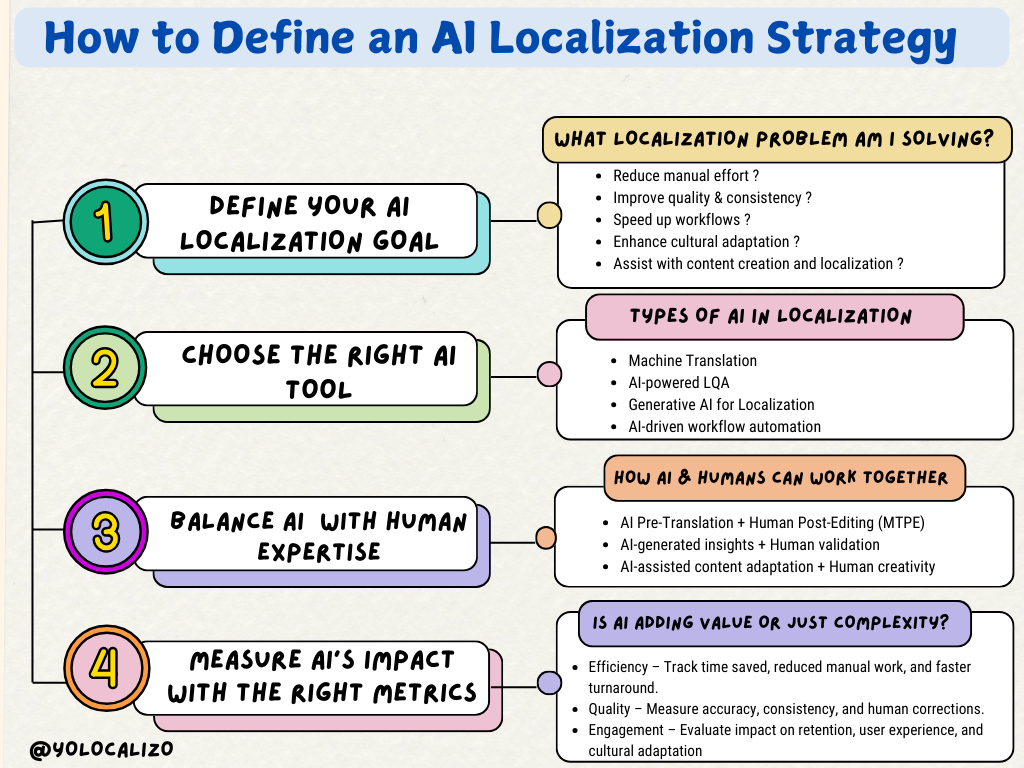








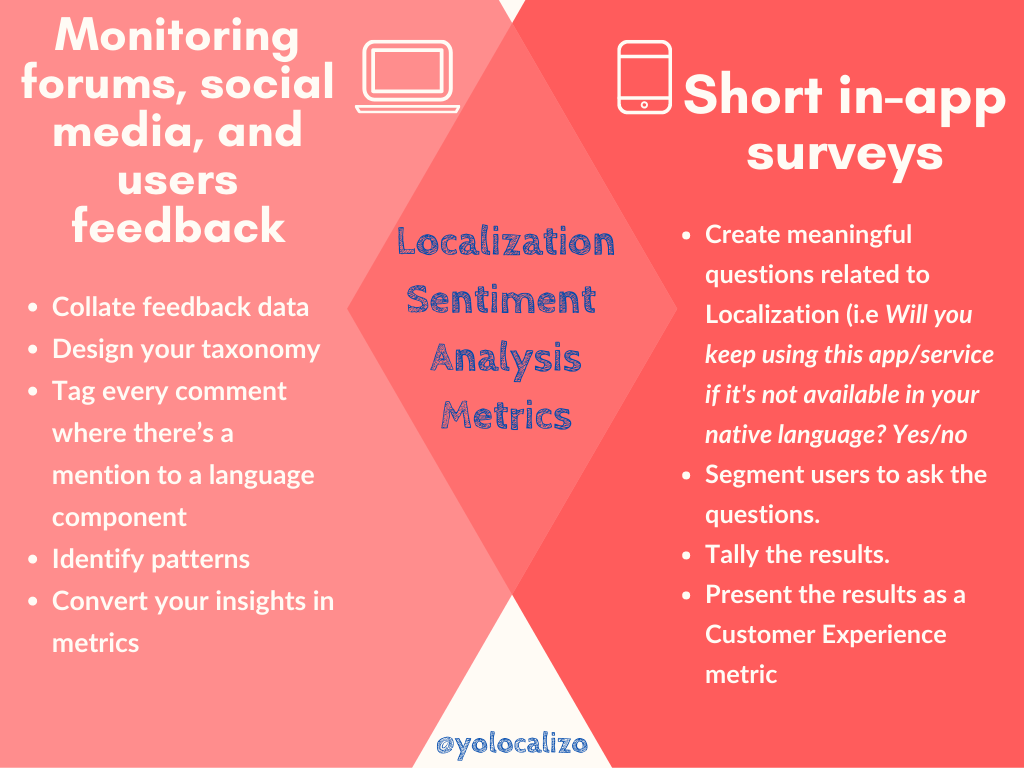
Localizability has always been a challenge small issues in source content often lead to big problems later in translation. In this post, I explore how AI is giving localization teams a powerful new way to improve source quality, reduce friction, and create better content for every market right from the start.